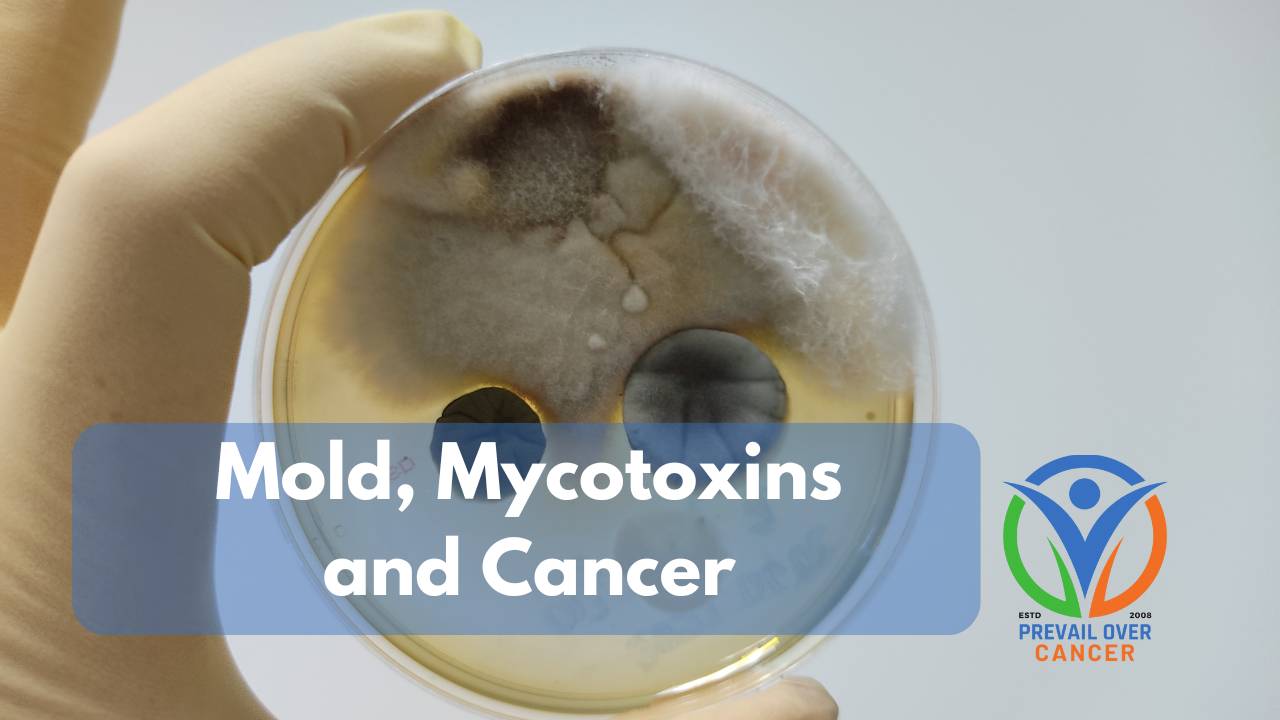Mold, Mycotoxins, Liver Damage and Cancer Risk

Researched and written by Keith Bishop, Clinical Nutritionist, Cancer Coach, Retired Pharmacist, and Founder of Prevail Over Cancer.
Mold and fungus are more than just household nuisances — they may pose serious health risks, including contributing to cancer development. While not all mold exposure leads to disease, particular species produce mycotoxins, toxic compounds that have been linked to liver, kidney, and esophageal cancers. This Prevail Over Cancer blog post examines the science behind mold-related health risks, provides guidance on testing your environment and body, and offers actionable strategies to minimize exposure.
⚠️ Health Concerns Linked to Mold and Mycotoxins
Mold exposure can trigger:
- Respiratory issues: Asthma, sinusitis, chronic cough
- Neurological symptoms: Brain fog, memory loss, dizziness
- Immune dysfunction: Autoimmunity, frequent infections
- Hormonal imbalances: Fatigue, irregular cycles, blood sugar swings
- Skin i...
Why I Often Recommend Certain Herbal Supplements and Fenbendazole Before Meals
I often recommend taking Herbs, Onco-Adjunct Pathways, Stabilized R-Lipoic Acid Supreme, and Fenbendazole before meals.
Researched & written by Keith Bishop, Integrative Cancer Educator, Cancer Coach, Clinical Nutritionist, Founder of Prevail Over Cancer and the Prevail Protocol, and Retired Pharmacist.
Cancer Cells Thrive on Glucose and L-Glutamine: Insights from Dr. Thomas Seyfried
Dr. Thomas Seyfried, PhD, has extensively researched how cancer cells depend on glucose and L-glutamine for their growth and proliferation. Cancer cells exhibit altered metabolism, relying heavily on glucose (the Warburg effect) and L-glutamine (an amino acid) to fuel their rapid division and growth. By disrupting these metabolic pathways, we can effectively starve cancer cells and inhibit their growth.
The Benefits of Onco-Adjunct Pathway Supplements and L-Glutamine
Taking Onco-Adjunct Pathway 2, 3, 3+, 4, and Stabilized R-Lipoic Acid Supreme™ before meals can enhance the absorption of nutrients ...



